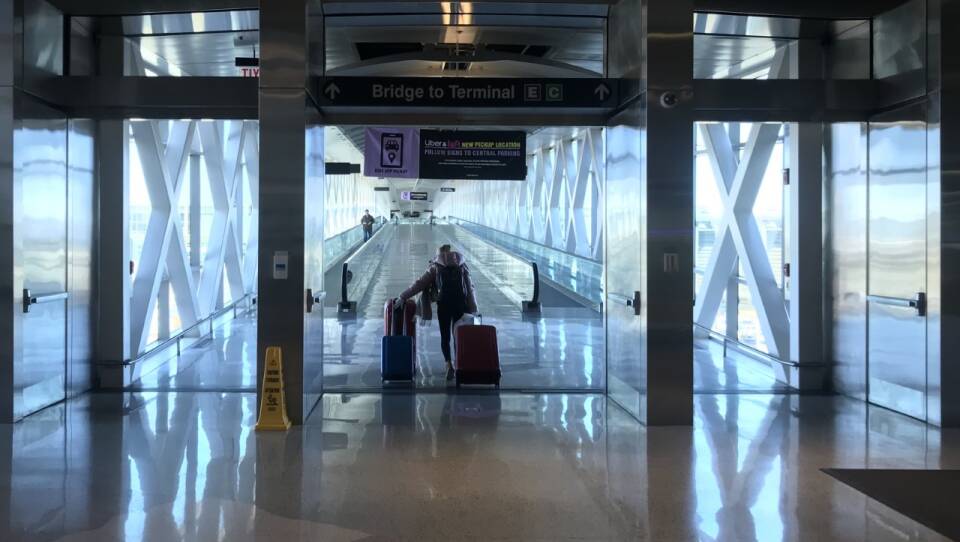At airports across the country over the weekend, hundreds of international travelers were bottle-necked when trying to clear new COVID-19 screenings ordered by the Trump Administration. But not in Boston.
Instead, the scene at Logan International Airport was quiet and nearly empty as passengers complained of screenings that seemed inadequate.
Several travelers said the procedure consisted of a paper questionnaire, one or two additional questions from health workers and a sendoff with advice to self-monitor temperatures for the next two weeks.
"It's not a screening at all," said Ann Jone,s who returned from Norway Saturday evening . "I was told to take my temperature and contact my doctor if my temperature went up."
Jones, 82 said the procedure seemed "completely useless" given that the screener did not check her temperature or instruct her to self-quarantine. She also was concerned about waiting in line amid other, younger passengers returning from other higher-risk European countries.
"I'd call [the screenings] a dangerous delay in dispersing a crowd, for one thing," she said. "And, I would say that what they give out is advice."
Vivian Myron, a Boston University student who returned from London Sunday, said she was only asked if she had visited any additional European countries.
“No one told me to self-quarantine. There was no health check of any kind, and I was able to go through quite quickly and pick up my luggage and leave,” she said.
Even though the United Kingdom and Ireland were not scheduled to become part of the travel restrictions until late Monday night, Myron said she would voluntarily quarantine for the next two weeks.
For 27-year-old Jillian Tsacoyeanes, who returned to from Spain — where more than 9,000 cases of the virus were confirmed by Monday — early Saturday morning, the screening was also surprisingly brief after she filled out a health declaration form.
"[The screener] took my form, she signed and dated it and then she gave me a little flyer which said ''health alert, coronavirus.' In a little box, it said to stay home for 14 days and, if you have symptoms, call a doctor," said Tsacoyeanes, a Somerville resident. "They didn't ask any follow up questions, they take my temperature."
Logan International is one of 13 airports tapped by the Department of Homeland Security to accept U.S. citizens, certain family members and green card holders returning from travel-restricted countries outlined in a presidential proclamation last week.
The screening's effectiveness was called into question as passengers circulated social media photos showing hundreds of people jam-packed into Customs and Border Protection processing areas waiting to be screened.
Boston was praised for its defiance of the congestion trend, but multiple passengers claimed the screening appeared to be a matter of paperwork. The Centers for Disease Control and Prevention did not respond to WGBH News' request for clarification about what tasks should be performed at each screening.
Dr. Arthur Reingold, head of the epidemiology and biostatistics division at the University of California Berkeley, said he can understand why people would want thorough screenings at airports, but he's uncertain that temperature checks and self-reporting would be an effective means of curtailing an already wide-spread outbreak.
"How many with the coronavirus will come into the country with no fever, and no symptoms, and then develop illness once they're here?" he queried, pointing to the virus' incubation period. "It's by no means going to be fool proof."
He added that whether it's effective and useful "remains to be seen."
Still, Tsacoyeanes said she was concerned about what might happen in the U.S. if the point-of-entry screening is so relaxed.
"It doesn't seem like enough to trust us to self-report," she said. "This is a point where [screeners] know we're coming from a high-risk area. They have all of us there, and we can't leave without going through them.
"I think it was really a missed opportunity."





